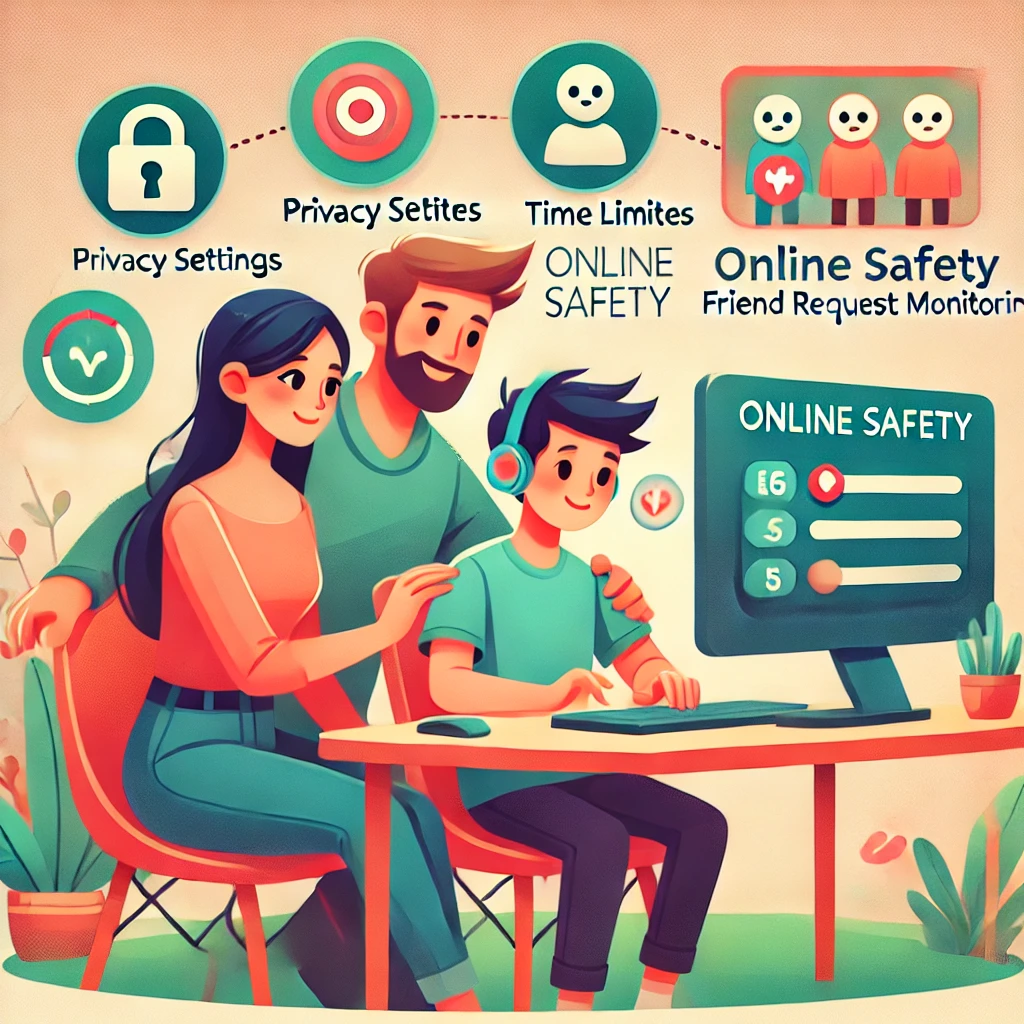Parents’ Guide to Online Gaming: How to Keep Kids Safe in the Digital Arena

Online gaming has become a major form of entertainment for children and teens worldwide. While it offers benefits such as improved cognitive skills, teamwork, and social interaction, it also presents risks that parents need to be aware of. From exposure to inappropriate content to cyberbullying and excessive screen time, it’s essential for parents to stay informed and proactive. This comprehensive guide provides practical tips to help parents ensure their children’s online gaming experience is safe and enjoyable.
Why Kids Love Online Gaming
Understanding why children are drawn to online gaming can help parents engage in productive conversations about safe gaming habits. Here are some common reasons kids love gaming:
- Social Interaction: Many games allow players to connect with friends or make new ones.
- Challenge and Competition: Games offer goals, rewards, and a sense of achievement.
- Entertainment and Escapism: Gaming provides an escape from daily stress and boredom.
- Creativity and Exploration: Some games let players build worlds, solve puzzles, or explore virtual landscapes.
Potential Risks of Online Gaming
While gaming can be a positive experience, it’s crucial to be aware of potential risks:
1. Exposure to Inappropriate Content
Some games may contain violence, strong language, or adult themes that are unsuitable for young players.
2. Cyberbullying and Online Harassment
Kids may encounter bullying, offensive language, or harassment from other players.
3. Privacy Concerns
Children may unknowingly share personal information that can be exploited.
4. In-Game Purchases and Scams
Many games include microtransactions that can lead to unexpected charges if not monitored.
5. Gaming Addiction and Excessive Screen Time
Spending too much time gaming can interfere with schoolwork, sleep, and social activities.
Steps to Keep Kids Safe While Gaming
Parents play a vital role in ensuring a safe gaming environment. Here’s how to protect your child in the digital gaming world:
1. Understand the Games They Play
- Research Game Content: Use resources like the Entertainment Software Rating Board (ESRB) or Pan European Game Information (PEGI) to check game ratings and content.
- Try the Games Yourself: Playing the games can give you firsthand insight into what your child is experiencing.
- Watch Gameplay Videos: If you can’t play, watching videos on platforms like YouTube can help you understand the game’s content and community.
2. Set Clear Boundaries and Time Limits
- Create a Schedule: Balance gaming with homework, outdoor play, and family time.
- Use Built-In Parental Controls: Most gaming consoles and platforms offer features to limit playtime and control content.
- Encourage Breaks: Regular breaks prevent fatigue and promote healthier gaming habits.
3. Discuss Online Safety and Etiquette
- Talk About Privacy: Teach kids never to share personal information like their real name, address, or school.
- Emphasize Respectful Communication: Encourage polite behavior and explain the importance of treating others kindly online.
- Discuss the Risks of Chat Features: Be aware of voice and text chats, and consider disabling them if necessary.
4. Monitor Online Interactions
- Know Who They’re Playing With: Encourage playing with friends they know in real life.
- Review Friend Lists and Messages: Regularly check who your child is communicating with in-game.
- Use Privacy Settings: Adjust game settings to limit interactions with strangers.
5. Manage In-Game Purchases
- Turn Off Purchases: Disable in-game purchases to avoid accidental spending.
- Use Parental Approval Settings: Require password entry or approval before purchases are made.
- Educate About Scams: Teach kids to be wary of offers for free currency or items that seem too good to be true.
6. Encourage Positive Gaming Experiences
- Choose Age-Appropriate Games: Opt for games that promote creativity, problem-solving, and learning.
- Play Together: Gaming with your child can strengthen your bond and provide insight into their digital world.
- Celebrate Achievements: Acknowledge their gaming milestones to show interest and support.
7. Recognize Signs of Problematic Gaming Behavior
Watch for warning signs that gaming may be becoming a problem:
- Neglecting schoolwork or other responsibilities
- Withdrawing from family and friends
- Irritability or anxiety when not gaming
- Significant changes in mood or sleep patterns
If you notice these signs, have an open conversation and consider seeking guidance from a counselor or healthcare professional.
Using Parental Controls Effectively
Most devices and platforms offer parental control features. Here’s how to use them:
- Consoles (PlayStation, Xbox, Nintendo): Set age restrictions, control spending, and limit playtime.
- PC Gaming (Steam, Epic Games): Use family settings to restrict content and monitor purchases.
- Mobile Gaming: Adjust settings on app stores to limit downloads and in-app purchases.
- Streaming Platforms (Twitch, YouTube Gaming): Enable restrictions to block inappropriate content.
Helpful Resources for Parents
- Common Sense Media: Provides reviews and advice on games, apps, and media.
- ESRB.org: Offers detailed information on game ratings and content descriptors.
- StopBullying.gov: Resources for addressing and preventing cyberbullying.
- ConnectSafely.org: Guides on online safety and digital citizenship.
Final Thoughts
Online gaming is an integral part of modern childhood, offering both opportunities and challenges. By staying informed, setting clear guidelines, and maintaining open communication, parents can help their children enjoy gaming in a safe and balanced way. Remember, the goal is not to ban gaming but to guide kids toward making responsible choices in the digital world.
Stay connected with our website for more parenting tips, technology guides, and resources to navigate the ever-changing digital landscape.